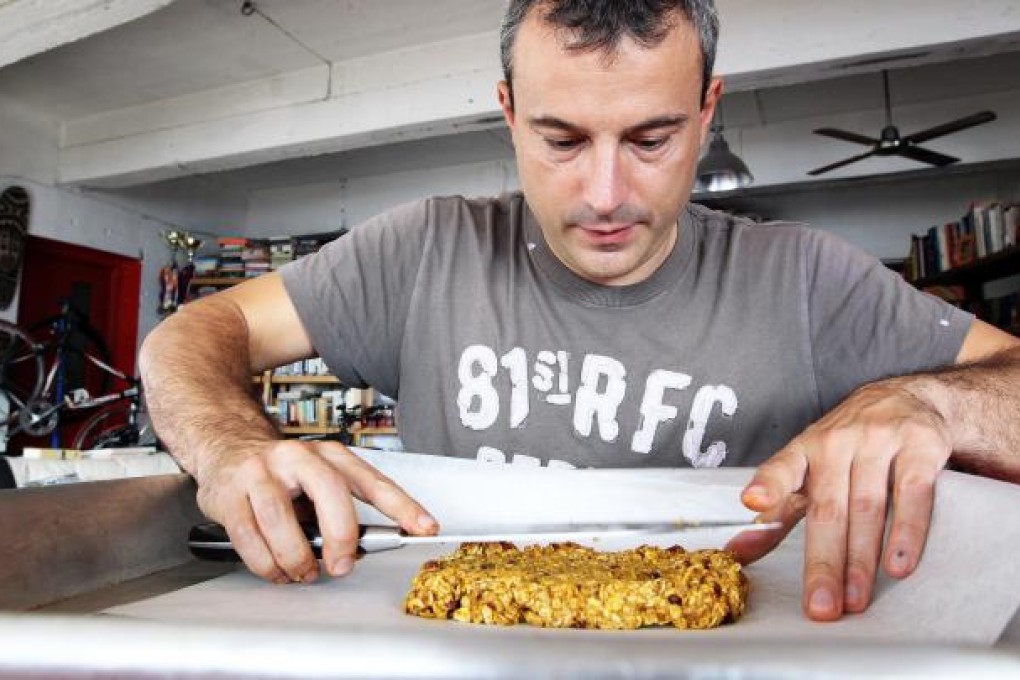
We like energy bars because they are convenient. Bars are great for lunch hours spent working out, for a post-hike snack in a remote country park and for a bite on the bicycle when fuss-free energy is key.
But as far as health is concerned, the bars we buy at the stores are not a substitute for a well-balanced meal made with real food. Even during prolonged exercise, there are better alternatives: home-baked bars, low-fat cakes, boiled rice patties, fresh and dried fruit, baked potatoes, and bread with Nutella.
In some cases, the harm of pre-packaged energy bars can outweigh the convenience they provide. Tooth decay, for example, is a serious problem for athletes because of the sugar content of bars. "Most bars in the market are the equivalent of candies," says dentist Dr James Costello. "They are marketed differently, but the effect of the sugar on the teeth is the same."
Costello started his own organic whole food bar range under the Hong Kong-based food company Stephen James Luxury Organics name when his brother Steve couldn't find an energy bar for his son that wasn't unhealthy, or tasted terrible, or both.
Costello's advice is to look for energy bars with low sugar content, or those that use complex sugars. This way, you can avoid the acidifying effect that refined sugars have on the blood. He suggests you "stay away from chewy and sticky bars that get caught between the teeth, and stay in the mouth longer".
Besides putting your smile at risk, bars may end up on your hips. Bars are meant to replenish energy stores during exercise, rather than being eaten as snacks. But they are often unnecessary, even for an athlete who exercises regularly.
